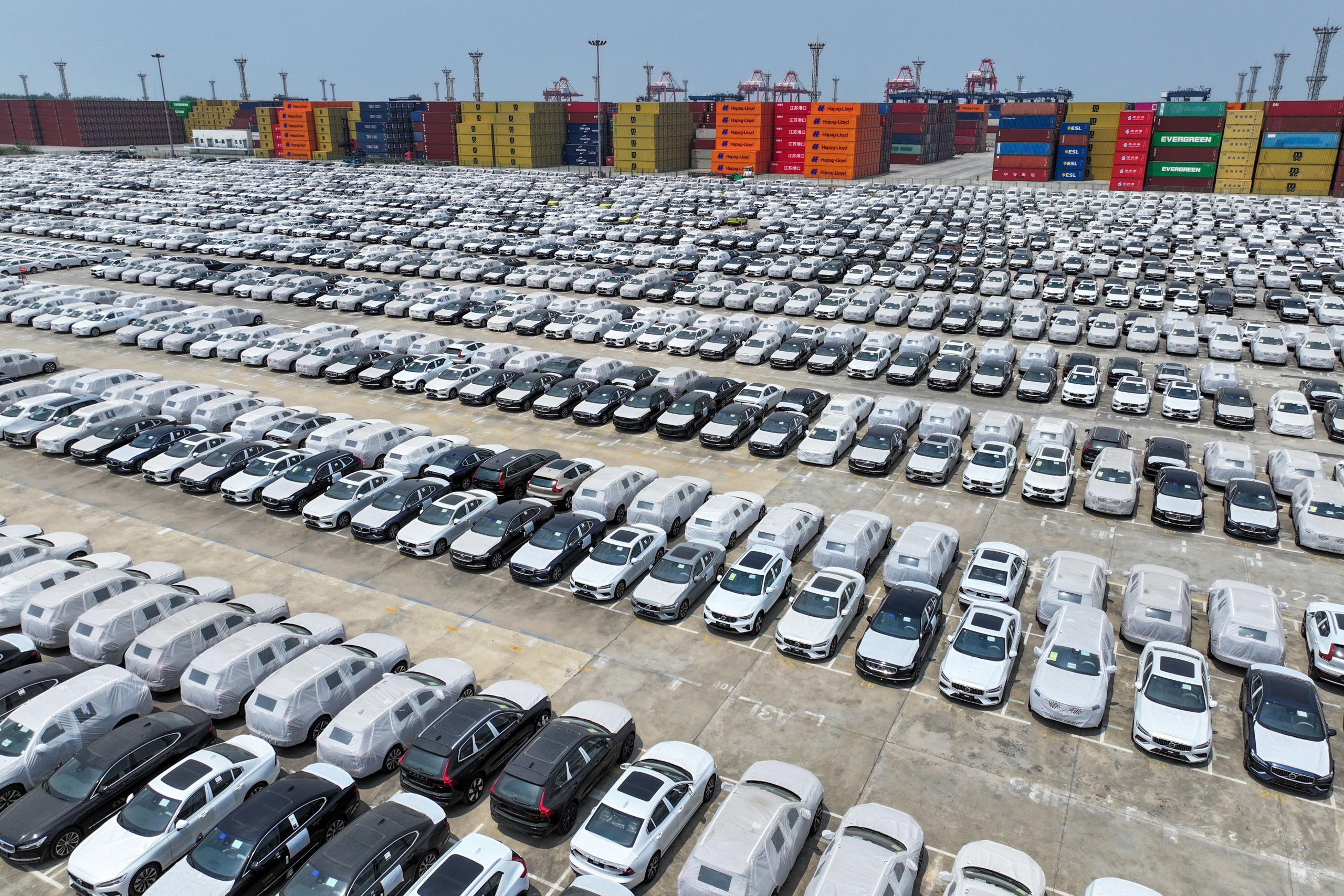China´s Electric Car Miracle Turns Menace – State-Driven EV Boom Risks Economic Fallout (31.07.2025)
China’s electric vehicle sector once hailed as a cornerstone of China’s industrial transformation is now showing fatal signs of overreach state‑backed expansion has created a perfect storm of excess capacity collapsing margins and rising economic risk
✨Get a Dissertation Research Proposal on this Topic
Fill in the form and we will shortly create and send you the research proposal on "China´s Electric Car Miracle Turns Menace – State-Driven EV Boom Risks Economic Fallout " for free.

China used aggressive subsidies rebates cheap finance and local government support to catalyze its ev industry rapid expansion led to China commanding more than 60 % of global ev sales and dominance over battery supply chains
But the picture has shifted sharply: plant utilization across ev factories has plunged to around 50 % the lowest in a decade while inventory levels have soared above ¥370 billion and total sector debt climbed 56 % to ¥959 billion in 2024
Profit margins are evaporating. the median net margin across 33 listed automakers dropped to just 0.83 % in 2024 from 2.7 % in 2019 only BYD remains an outlier with a 5.4 % margin by pivoting toward automotive revenue
Intense price wars have rocked the market smaller brands like Neta slashed prices by more than 20 % to shed inventory this has intensified deflation with producer price index down −3.6 % in June 2025
On July 16 China´s cabinet under premier Li Qiang announced measures to clamp down on “irrational” competition price monitoring banning below cost selling and demanding timely supplier payments
President Xi Jinping has issued rare warnings against local governments racing into ai computing and ev´s without coordination labelling such hyper‑competitive dynamics as “involution” and highlighting waste and deflation risks
Consultancy Alixpartners projects only 15 of the current 129 ev brands in China will survive through 2030 controlling 75 % of market share consolidation will be slow given local governments may keep propping up weak players to preserve jobs and tax revenues
China´s export push is more aggressive having capacity to export up to 560 000 cars annually to Europe in 2025 scaling toward 1.7 million by 2026 that excess has provoked tariffs and trade friction from the EU, US and Canada on alleged unfair subsidies
Smaller export markets such as Thailand mirror the same risks in 2025 Neta saw registrations slump 48 % exposing raw fragility of second‑tier players in global markets as price wars follow them abroad
Wider economic risks loom if overinvestment continues unchecked analysts warn of empty industrial parks rising debt deflationary spillovers and failure to rebalance toward domestic consumption undermining China´s transition to sustainable growth model
China struggles to shift from manufacturing dependency and weak consumer demand remains a chronic constraint economists argue deeper market reforms stronger social welfare and re‑aligned local government incentives are essential to rebalance growth and contain systemic risks
Meanwhile commodity markets briefly rallied in July as investors bet that authorities are finally serious about curbing overcapacity in sectors including steel solar polysilicon and ev´s signaling possible supply‑side reform
Summary
China´s electric vehicle sector, once a showcase of its industrial and technological rise, is now burdened by oversupply intense price wars and vanishing profitability while a few dominant players like BYD remain competitive. Most of the industry is struggling with mounting debt and deflationary pressure. The government is intervening to reduce harmful competition and encourage consolidation but without stronger domestic demand and structural reforms, the sector risks becoming a long term drag on China’s economic stability and growth trajectory
Related Online Reading
- merics.org / Beyond overcapacity: Chinese‑style modernization – analysis of how state‑led investment in EVs and other sectors drives inefficiency
- ainvest.com / China’s EV price wars heighten global concern – view on how subsidy withdrawal and price competition intensify risks in the EV industry
- deloitte.com / Global economic ripple effects from China’s overcapacity – Deloitte insight into how China’s oversupply of high‑tech exports impacts international trade dynamics
- apnews.com / Export dependence and rebalancing efforts in China‑US trade talks – AP News overview of broader policy pressures facing China from external trade partners
- reuters.com / Local market distortions distort EV sales data – Reuters investigation revealing the use of pre‑insured car schemes to inflate figures
About ECEBiS
At ECEBiS you are going to understand what will change the trajectory of the financial industry. You will develop a transversal view on the forces that are shaping the future financial industry.
From payments and lending to investment and money management, tech providers are actively shaping the future of the financial landscape - even pushing the boundaries of currency itself. You might evaluate the impact of robo-advising on health management and examine portfolio recommendations from a diversified set of RAs and attempt to identify the factors behind proposed splits between asset classes.
ECEBiS is a platform in academic research on new business models and innovative products. We investigate in fast moving sectors that are reshaping the financial world of tomorrow and pioneering new ways of doing business. We want to attract outstanding ECEBiS students in finance with experiences and exposures, who intend to
Doctorate of Business Administration (DBA) in Finance (online, 3 years part-time)
develop knowledge on challenges that shape the future of financial industry
engage with a program that offers the convenience of online learning with the benefits of accreditation and global reach.
raise awareness on the importance of fintech and sustainability in finance
identify the best practices in the financial industry to spread positive changes
Go beyond the virtual classroom and network with other ambitious executives and entrepreneurs as you expand your credibility and expertise in the world’s most transformative fields.